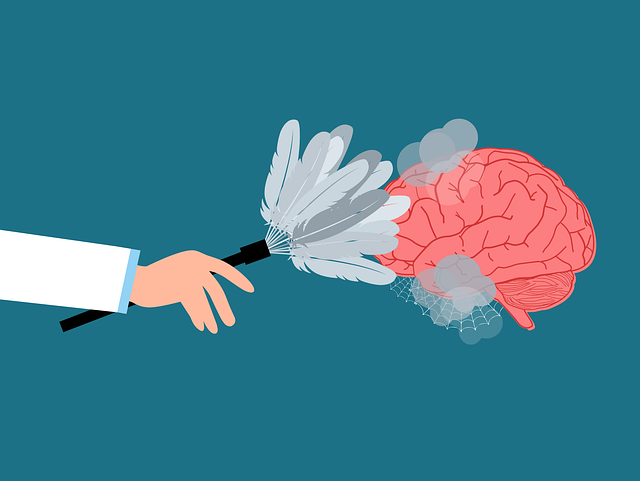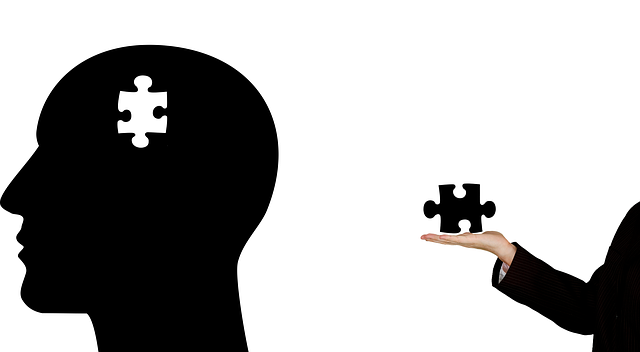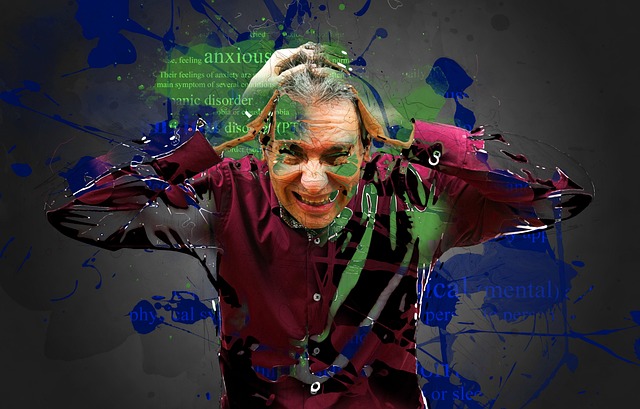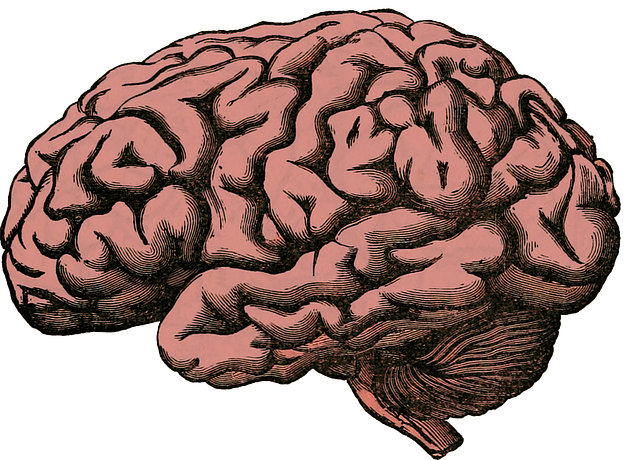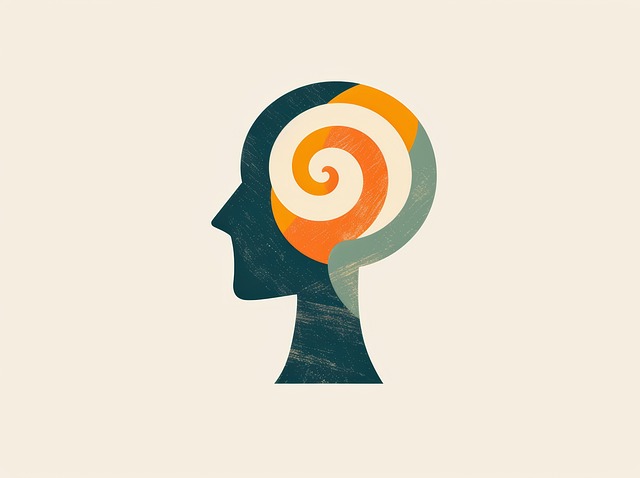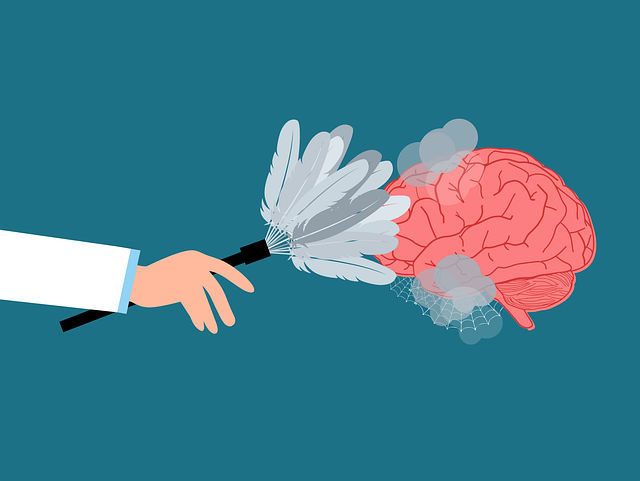Emotional Intelligence (EI) is a powerful tool for improving mental health, especially for those with Centennial Post-Traumatic Stress Disorder (PTSD). By enhancing self-awareness, social awareness, and communication skills, individuals can better navigate social situations, resolve conflicts, and express themselves authentically. This promotes emotional well-being, boosts resilience, and reduces PTSD symptoms, leading to a more balanced and fulfilling life. Centennial Therapy offers a holistic approach combining mindfulness, exposure therapy, and cognitive restructuring to process trauma while developing self-awareness and adaptive coping skills. Stress Management Workshops further support this by teaching positive thinking and reframing negative thoughts, fostering emotional intelligence through increased self-control and resilience.
Emotional intelligence (EI) is a powerful tool for navigating life’s complexities, especially for those recovering from traumatic events like post-traumatic stress disorder (PTSD). This article explores the profound impact of EI on mental health and delves into innovative therapeutic approaches, centring on Centennial Post-Traumatic Stress Disorder (PTSD) therapy. We unravel the connection between PTSD and emotional regulation strategies, offering insights into how cultivating EI can foster healing and resilience.
- Understanding Emotional Intelligence and its Impact on Mental Health
- Unraveling the Connection: PTSD and Emotional Regulation Strategies
- Centennial Therapy Approaches to Nurture Emotional Intelligence in Post-Traumatic Stress Disorder Treatment
Understanding Emotional Intelligence and its Impact on Mental Health

Emotional Intelligence (EI) refers to an individual’s ability to recognize, understand, and manage their own emotions, as well as perceive, interpret, and respond appropriately to the emotions of others. This skillset goes beyond mere empathy; it involves utilizing self-awareness, social awareness, and effective communication strategies to foster positive interactions and promote emotional well-being. Centennial Post-Traumatic Stress Disorder (PTSD) Therapy, for instance, increasingly incorporates EI techniques to help individuals process trauma, build resilience, and improve their mental health outcomes.
By integrating Social Skills Training and Communication Strategies, individuals can enhance their ability to navigate social situations, resolve conflicts, and express themselves authentically. This is particularly crucial in promoting emotional well-being, as it enables people to better cope with stress, regulate emotions, and build meaningful relationships. Understanding and managing emotions effectively can significantly reduce the impact of mental health issues like PTSD, fostering a more balanced and fulfilling life.
Unraveling the Connection: PTSD and Emotional Regulation Strategies

Post-Traumatic Stress Disorder (PTSD) is a complex condition that deeply impacts an individual’s emotional landscape. It often stems from traumatic events, leaving individuals struggling to regulate their emotions effectively. Unraveling this connection between PTSD and emotional regulation strategies is pivotal in Centennial Post-Traumatic Stress Disorder Therapy. Mental Health Policy Analysis and Advocacy play a crucial role in understanding the societal factors contributing to trauma and its subsequent emotional dysregulation.
One effective approach to managing PTSD symptoms involves incorporating Mental Wellness Journaling Exercise Guidance. Writing down thoughts, feelings, and experiences can serve as a powerful tool for individuals to process their traumatic memories and develop healthier coping mechanisms. Additionally, Stress Management Workshops Organization within communities can equip people with practical strategies to navigate stress and anxiety associated with PTSD. These initiatives contribute to holistic healing, fostering resilience and improved emotional intelligence.
Centennial Therapy Approaches to Nurture Emotional Intelligence in Post-Traumatic Stress Disorder Treatment

Centennial Therapy approaches to nurturing emotional intelligence in Post-Traumatic Stress Disorder (PTSD) treatment focus on holistic healing and resilience-building. These methods go beyond traditional talk therapy, integrating various techniques such as mindfulness practices, exposure therapy, and cognitive restructuring. By combining these strategies, Centennial Therapy aims to help individuals process traumatic memories while cultivating self-awareness, emotional regulation, and adaptive coping mechanisms.
The Stress Management Workshops Organization emphasizes Mind Over Matter principles, promoting positive thinking and reframing negative thought patterns associated with PTSD. These workshops provide a supportive environment for individuals to learn stress management techniques, fostering emotional intelligence through increased self-control and resilience. Through interactive activities and group discussions, participants gain valuable tools to navigate their emotions, enhance their overall well-being, and build a more positive outlook—all integral components of Centennial Therapy’s comprehensive PTSD treatment approach.
Emotional intelligence, a key component of overall well-being, plays a pivotal role in managing mental health challenges like Post-Traumatic Stress Disorder (PTSD). The interconnectedness between emotional intelligence and PTSD highlights the importance of therapeutic approaches that foster emotional regulation. Centennial Post-Traumatic Stress Disorder therapy offers innovative strategies to nurture emotional intelligence, providing individuals with powerful tools to navigate and overcome the impact of trauma. By integrating these therapeutic methods, we can enhance resilience and promote positive mental health outcomes for those affected by PTSD.

